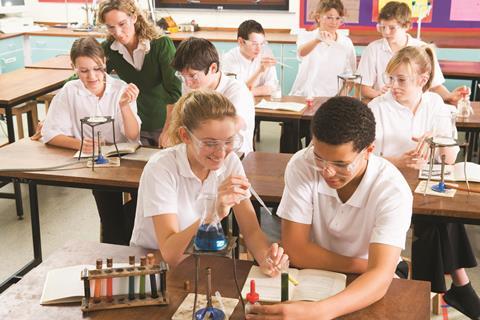Researchers at Durham University have been investigating different techniques to measure key aspects of practical performance

Science teachers in England, Wales and Northern Ireland have been grappling with the complexities of assessing pupils' practical skills through GCSE investigations for the past 15 years or so. Questions have been raised about the value of these tasks and the effect they have had on pupils' perceptions of science. Ros Roberts and Richard Gott of Durham University have been investigating different techniques to measure key aspects of practical performance with a view to producing test items that are more reliable than those currently used.1
The researchers produced 19 written questions designed to measure pupils' understanding of scientific procedures, eg selecting the correct measuring instrument, understanding variables, and appreciating the value of the evidence. One hundred year 10 pupils in a comprehensive school in the north of England were set the questions and the results compared with internal end-of-module tests and internal assessment of practical work for each pupil. The results of the study showed that the written practical performance test was a sound assessment method.
To determine what would be the characteristics of pupils who would do well in the written practical performance test the researchers studied data from the pupils' cognitive ability tests (CAT). They asked teachers to describe a sample of pupils, some who had done well and some who had performed badly in the test.
According to the CAT results and teacher feedback, the overriding attribute of those who performed well in the test was 'quickness of thought'. While this attribute is important the researchers point out that this test needs to be combined with other assessment methods to give a clearer picture of individuals' practical ability.
References
- R. Roberts, and R. Gott, Assess. Educ., 2006, 13(1), 45.






No comments yet